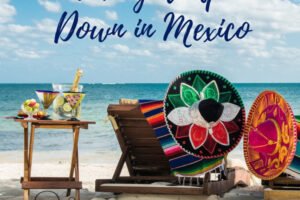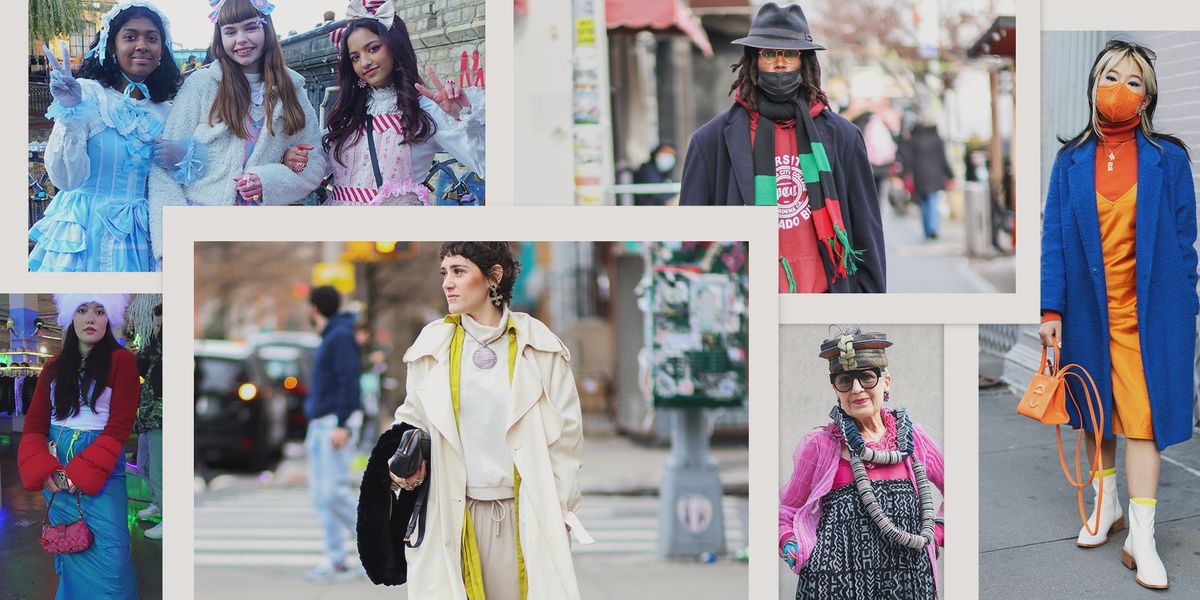

Style Points is a weekly column about how fashion intersects with the wider world.
Sometime in the late spring of 2020, Johnny Cirillo started noticing everything had become see-through.
He hadn’t suddenly developed X-ray vision–but his street photography subjects had overwhelmingly begun opting for sheer looks, even as they covered their faces with masks. The thought process, he rationalizes, was, “I always wanted to do this, but I’m a little bit nervous. Now there’s a little bit of hidden identity here, I think I can get away with it.”
Cirillo is one of a new cohort of Instagram-famous street-style photographers who combine traditional fashion photography with the street documentary traditions of people like Garry Winogrand and Vivian Maier, serving up slices of everyday life. Imagine a mashup of Humans of New York and The Sartorialist, and you’ll be close. Though they do shoot traditional street style of the fashion-week variety, the majority of their oeuvre is not centered around glamorous show venues, but everyday life in Brooklyn, downtown Manhattan, or, in the case of photographer Daisy Davidson, London areas like Camden and Portobello Road.
Cirillo decided to start taking street-style photos the day after Bill Cunningham’s passing, inspired by the photographer’s populist approach. “It was just one of those things that you do because maybe it’ll make you feel something,” he says. He headed down to Spring Street and started taking pictures in front of the Mercer Hotel. “I went out for the day and did what I thought he would do, just to honor him. And it tumbled into this.” This being an Instagram account, Watching New York, which now boasts nearly 700,000 followers, and an accompanying TikTok account that gives more backstory on the process and features interviews with the people he photographs. (One frequent subject named Darnell recently summed up a look that included a balaclava, scarf, and tiny sunglasses as “I’m giving you Season 1, on a budget, Keeping Up With the Kardashians.”)
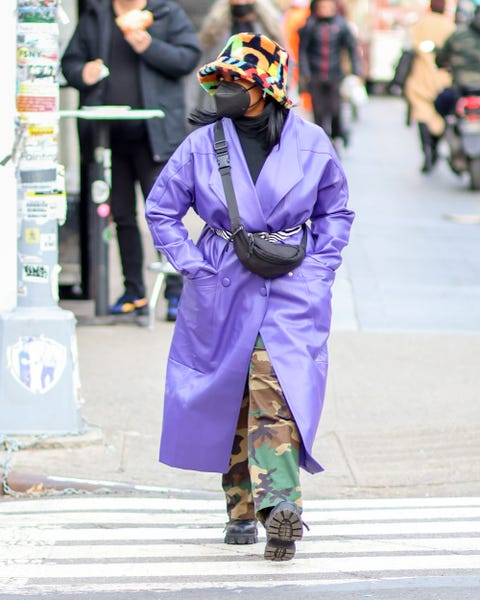 An image from Johnny Cirillo of Watching New York.
An image from Johnny Cirillo of Watching New York.
Johnny Cirillo
The project has given Cirillo a window into the moods and mores of a changing city as it cycles through the assorted stages of the pandemic. He distinctly remembers the moment when the sweatsuits came off—and the lewks came back. “I feel like everybody was just brushing themselves off, saying, ‘Right, let’s get out and let’s do it big. Then the colors just exploded on the scene. Highlighter yellow, pinks, blues, electric.” On the freezing winter day when we speak, he says of his latest photo session, “It was just a catwalk out there. It was fun.”
Rather than depict the carefully curated (and at this point, often brand-mediated) personal style of professional influencers, he loves featuring ordinary people who are often thrifting what they wear and mixing it creatively. “It’s not their job to do this,” he says. “They’re just doing it because it makes them happy.”
An ocean away, Davidson is shooting her own candid portraits of Londoners on her account @hystericsnaps, inspired by the colorful looks seen in Japanese magazines like FRUiTS and STREET. There’s an archival, anthropological impulse at work there as well. “I want to document this fashion,” she says, “so that people can look back on it.” Mid-pandemic, she saw an explosion of like-minded groups linked by their participation in fashion subcultures. They’d meet online and decide to get together in person, all dressed up in their most outrageous looks. Despite its digital origins, it was a return to IRL culture that reminded her of MySpace fifteen years ago, almost as if the challenges of lockdown had resulted in a flowering of in-person interactions and a re-examination of style trends from the recent past, whether it was emo or indie sleaze.
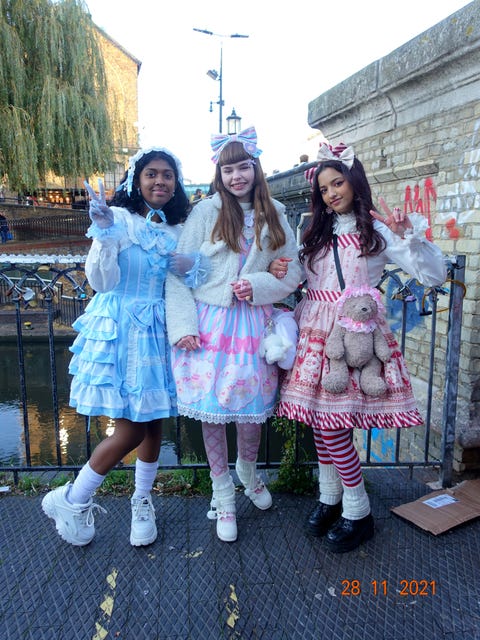 Photographer Daisy Davidson documents London’s street-style subcultures.
Photographer Daisy Davidson documents London’s street-style subcultures.
Daisy Davidson
I stumbled across the account @nyc-looks before realizing that its proprietor, Liisa Jokinen, had photographed me over a decade ago at Reykjavik Fashion Week for her blog Hel-Looks. When Jokinen and I reconnected over the phone, she explained that she’d moved from Finland to the U.S–first San Francisco, then New York–in the intervening time, and had been documenting the fashion of both cities on her account. “I guess it’s a surprise that I’m looking for,” she says. “A combination, an outfit, colors. Pieces of clothing combined together in a way that I haven’t seen anywhere before. I really don’t care if it’s a celebrity or an influencer. If they are, I don’t mind, but it’s definitely not something that I’m looking for actively.”
“When you go to Fashion Week, it’s like shooting fish in a barrel.” – Johnny Cirillo
When she began photographing stylish people in Helsinki back in 2005, she says, “I knew what their background [was], the environment that they purchased their clothing in, and most of the influences they had.” At that time, e-commerce was not yet the juggernaut it is now, and the city only had a limited number of stores, so secondhand ruled the streets. Then, when H&M then entered the market, she could see an immediate effect on the way people dressed. She thinks of these photos as a historical record. “I feel it’s super important to do that documentation work in a consistent way, because it’s such a big and important part of our visual culture and everyday life,” she says. “The longer I continue, the more important and meaningful and valuable my photos will be. Already, looking back at those 2005 photos…I’m like, ‘Some of those looks are still relevant now.’ ”
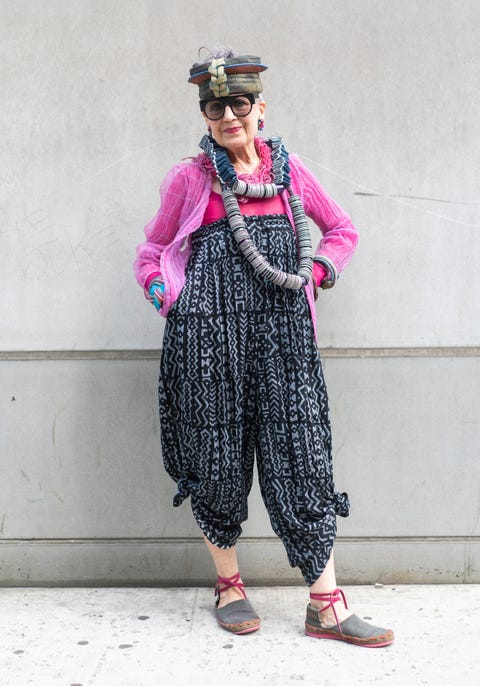 One of Liisa Jokinen’s street-style subjects.
One of Liisa Jokinen’s street-style subjects.
Liisa Jokinen
Her work has also served as a way to build relationships. “I love getting to know the people that I photograph, especially people that I photographed in Helsinki. They are my friends now,” she says. “I’m super thankful for that.” In her new home base of New York, she says, “People are dressing more for other’s eyes. To get attention or make certain impressions. I love it, because it means that then people really make an effort…Anything goes in New York, and it’s super inspiring. Whereas in Finland, people dress more for themselves.”
While their styles and subjects may differ, all three photographers are drawn to the thrill of the chase. “When you go to Fashion Week,” says Cirillo, “it’s like shooting fish in a barrel. All the big fish are there, and they want their photo taken and they’re strutting up and down the street for you. So there is something exciting about it, but it’s also like—your favorite thing in the world, whatever that might be, if you had an endless amount of that, maybe it wouldn’t be your favorite thing in the world anymore.”
Adds Davidson: “If you see someone and you just feel like they’ve got a spark to them, they have a passion for what they’re wearing and you can feel that they’re enjoying what they’re wearing: that’s what I like to document. Not feeling like they’re having to wear it for the sake of it being a thing. They’re just happy in it.”
This content is created and maintained by a third party, and imported onto this page to help users provide their email addresses. You may be able to find more information about this and similar content at piano.io






